Coronavirus vaccine a 'light at the end of the tunnel' for care homes
- Published
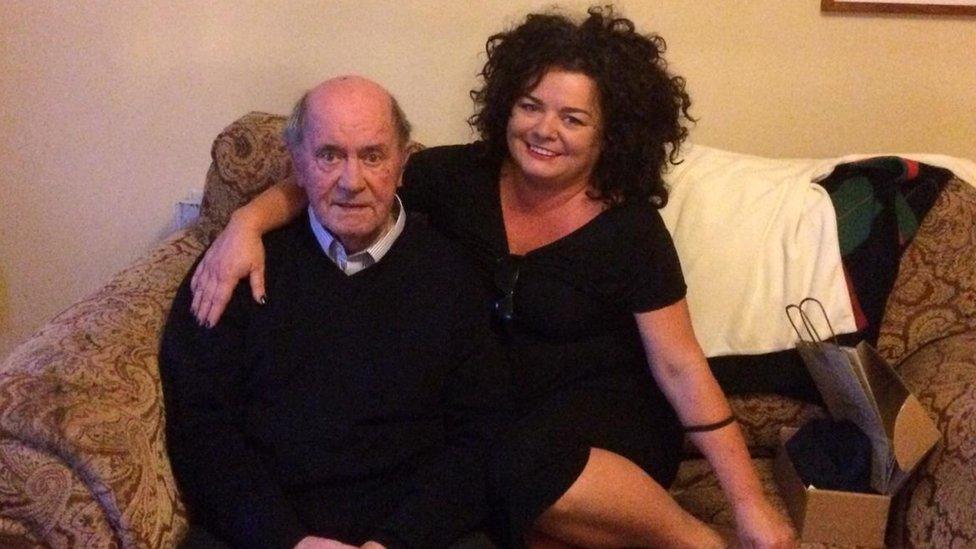
Julieanne with her father, Patrick, prior to social distancing rules
For care home residents and their loved ones, finally, there is "light at the end of the tunnel".
The news that a vaccine was approved for use in the UK on Wednesday signals the future end of what has been a trying and stressful time.
It is expected that the first vaccinations in Northern Ireland could happen as early as 9 December.
With that time frame comes relief and hope.
Julieanne McKeever told BBC Radio Foyle she is optimistic she will be able to hug her father, Patrick, a resident at Owen Mor care home in Londonderry, again soon.
She praised the exemplary care her father had received but said she struggled with socially-distanced visits.
"I don't like seeing him because it's too hard. You can't hug him or touch him and he doesn't understand.
"My dad has got very frail, he's in a wheelchair now and he tries to get up [when he sees Julieanne] so it's even more upsetting for everybody.
"He doesn't really talk or communicate on the phone so things like Zoom don't really work with daddy."
A resident at another home, 97-year-old Pauline McCartney, said it was "just marvellous" that care homes would be one of the first to be looked after.
She lives at Longfield Care Home in Eglinton, County Derry, and has been in her room during the pandemic.
"I'm over 90 years (of age), been through wars and all sorts of tragedies and that's just life," she said.
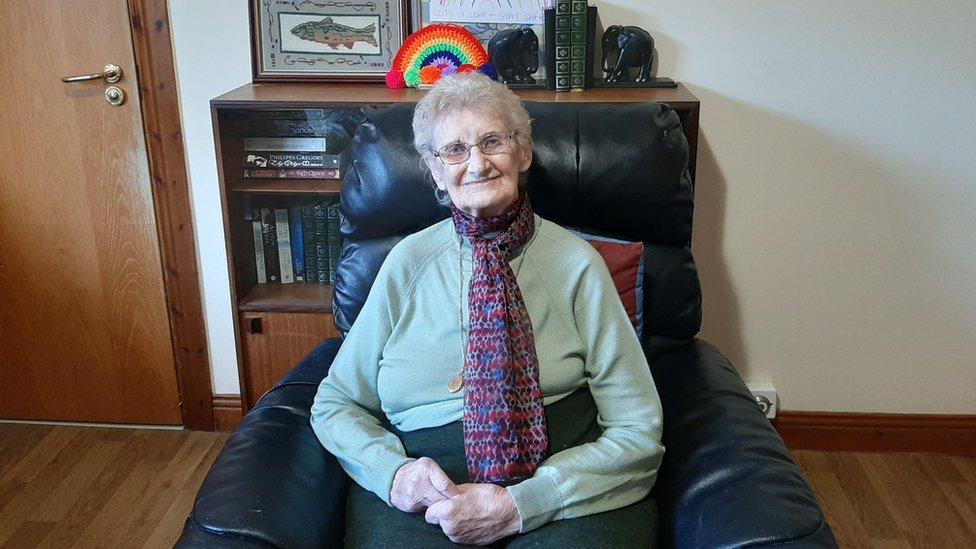
Pauline McCartney has remained positive despite the restrictions
"It was a bit scary, there's no doubt about that, but we're tested very four weeks and the staff are tested every two weeks."
As for the future, she is optimistic that she will get a new lease of life once the vaccine is available for her and others.
"Do you know what I'm looking forward to? Being 100!" she said.
Louise McCloskey, who manages that care home, said residents and staff alike "were pretty much buzzing".
"I know there's logistics in relation to administration and that, but I feel very optimistic that now my residents are hopefully going to be protected against this Covid pandemic," she told Good Morning Ulster.
She said that despite all the efforts of her staff, it had been a worrying time for residents and their families.
"I'm in the home nearly 20 years managing it and I would say, hand on heart, I've never been through anything as traumatic as this experience in my nursing career.
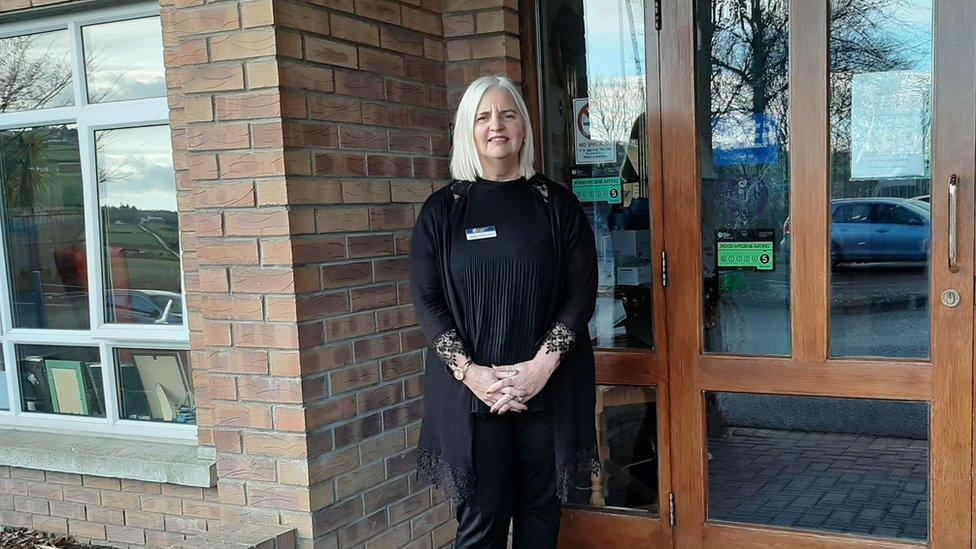
Louise McCloskey, who manages a care home, talked about the challenges during the pandemic
"We even had an inspection where the inspector left the unit in tears and said: 'I'm just overcome because you are facing this crisis together.'
"I think it has been a very, very trying time so that's why we had our celebration yesterday."
Dr Richard Manning's parents are residents at the home and have been separated for the past eight months due to safety measures.
"The fact that they'll be able to sit beside each other again, at some stage, in the near future will be great for them and no doubt they'll be looking forward to it," he told the same programme.
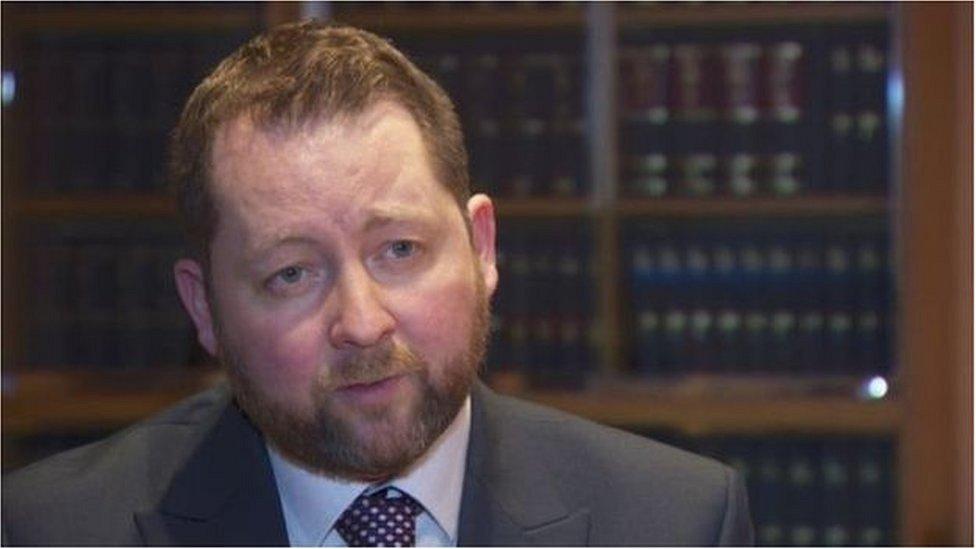
Eddie Lynch asked people not to let their guard down on coronavirus
Northern Ireland's Commissioner for Older People Eddie Lynch said the prioritisation of vaccinations for care homes meant "now we have hope".
"My office has heard from many families about the stress they were going through in recent months and how difficult it has been dealing with this pandemic and particularly care homes," he told BBC Radio Foyle.
"That absence of visiting, which has been really difficult for residents themselves and for families over many, many months.
"Yes, there is light at the end of the tunnel but we are not there yet.
"We still need to ensure we follow all the rules and keep people as safe as possible."
- Published15 February 2022
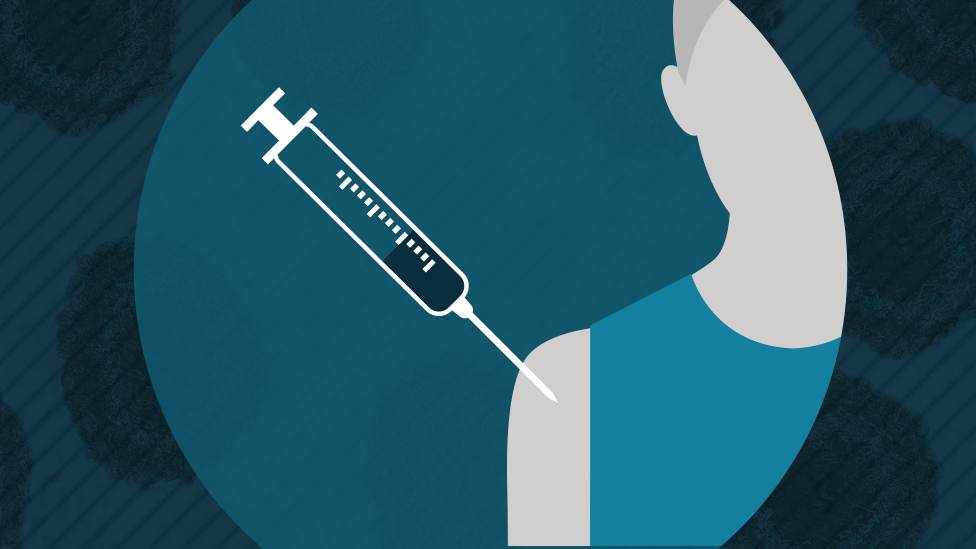
- Published2 April
